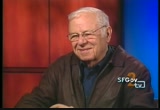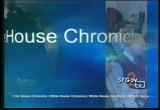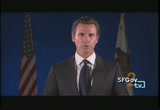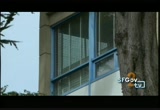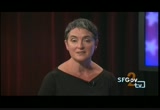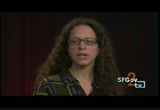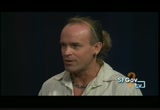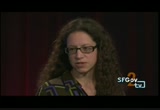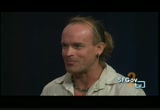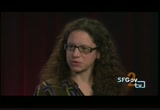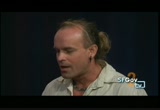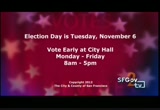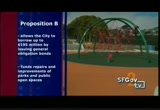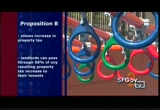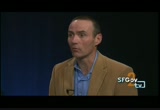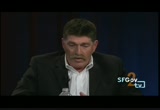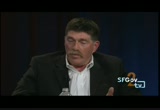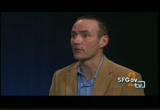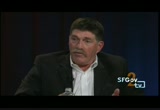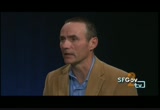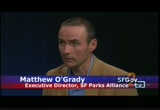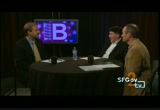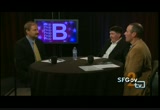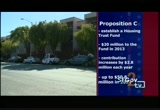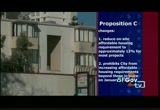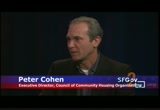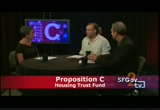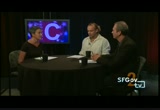tv [untitled] November 1, 2012 10:00am-10:30am PDT
10:02 am
man: 60-inch screen, high-definition. football season is coming up. you can watch it right here. what do you think? i'll take it. huh! huh! now, that's what i'm talking about. you're right. i don't need it. >> if you are interested in our local city government and would like to work with 18 other enthusiastic citizens committed to improving its operations, i encoura
10:04 am
member of the league of women voters. along with the league and sfgovtv, i'm here to discuss proposition a, a ballot measure that will be before the voters on november 6th. city college of san francisco has 9 campuses in the city and serves approximately 100,000 students each year. the state has reduced funding to ccsf by core academic courses, provide
10:05 am
work force training, provide an education that prepares students for 4 year universities, keep city college libraries and student support services open, keep technology and instructional support up to date, and offset state budget cuts. i'm here with alyssa messer, an english teacher at city college of san francisco. she's the ppt of aft2121, the faculty union, and a proponent of proposition a. also joining us is starchild, a local activist with the libertarian party of san francisco and a former candidate for the san francisco school board. he's an opponent of the measure. thank you both for taking the time to be with us today. >> thank you. >> alyssa, i'd like to give you the opportunity it share the thoughts of your position. >> so proposition a is a
10:06 am
temporary 8-year, $79 parcel tax on properties in san francisco. and that money would go directly to supporting city college of san francisco. city college is the largest work force training center in san francisco. we train students. we also help students learn english as a second language and then of course one of our primary missions is to help students, particularly low income and underserved students, move on to 4 year institutions. we serve nearly 100,000 students in san francisco and are a tremendous resource, we think, for san francisco. the last couple years the state budget cuts we faced, $53 million in the last 3 years alone, have really made it a challenge for us to keep our doors open for san francisco students and this proposition a would make a tremendous difference in addressing our fiscal problems right now. >> understood. thank you. starchild, can you present some of the thoughts around the
10:07 am
opposition? >> sure. we all believe in people getting an education and having those opportunities be affordable and accessible to them, but city college's financial problems, we believe, are not due to state budget cuts primarily but due to fiscal mismanagement. the accreditation report that came out recently found city college to be one of the 3 worst-performing schools in the 112 community colleges in california and as evidenced by the $276,000 salary of the head of city college, we blaefrb there's plenty of money they can find without going to the taxpayers. >> i understand there were 700 classes, a reduction in 700 classes, which from the reporting indicates that people have to be on longer wait lists. can you speak to that and how this would facilitate, if this proposition was passed, how that would be facilitated?
10:08 am
>> well, it's true. we faced tremendous budget cuts in the last several years. in fact, for the last several years running all of the employees of city college, even our chancellor, have taken pay cuts in order to keep the college open. but we've also seen closure of classes, we lost 700 classes this year, we canceled summer school a couple years ago, and these are measures we have had to take that have caused students to suffer and have caused all of city college to suffer. so that's why we're looking for an opportunity to bring in some funding from the city that we think san francisco taxpayers will support and that the state can't take away so that we can continue to serve san franciscoans. >> understood. i know there's a relationship with proposition 30 as well, of course, from the tax base and it's all connected and --. >> that's right. >> the tax is $79 per
10:09 am
household. can you talk about that and how that would be an impact in your view? it's an 8-year tax. it's a finite tax. >> well, you know they say the only things permanent are death and taxes. once a new tax is implemented we often find even though it's called temporary when it gets passed, it ends up bking permanent or longer term than was discussed. i would love for my colleague here to tell us that she won't support extending that tax beyond the 8 years if it were to pass, but i believe that there's other ways that city college can stay afloat and continue to serve a declining student population. they might close some of the new campuses they've opened recently and consolidate facilities. >> thank you. do you want to offer comments to starchild's
10:10 am
opposition? >> i think the, one of the primary things we need to remember is that city college of san francisco, which is an institution that san francisco really counts on, i think, for both our economy and for all of the community, has been operating under duress for a number of years. we can and we will make the smart reforms, we already are making the smart reforms that need to be made around scheduling, around addressing the needs of our various communities and of our students and i think that's already well underway. we'll meet our accreditation and work to make the college more fiscally sound. but proposition a is really a component of that. it's not everything that needs to happen at san francisco city college right now, but it is a huge component and it will make a tremendous difference in ensuring that city college is here for san franciscoans in the future. >> thank you. is there any further response you have, starchild? >> every time we take more
10:11 am
money from the taxpayers remember that's cutting into the budgets of families and individuals of san francisco who have to pay for their own education. outside city college they have to pay for housing and health care and food and other family needs, so it's a little bit misleading when we talk in terms of, well, what's going to happen to city college? we also need to think about what's going to happen to the people, hundreds of thousands of san franciscoans which have to pay this little bit of extra tax every year, which could be a lot for some of them, $80 a year. city college is spending 92 percent of their budget on staff when realistic budget is 85 percent. there's room for improvement there and city college can tighten its belt a little bit without coming back to the community which has borne multiple tax measures in the past.
10:12 am
>> i thank you both for being here again. we hope this discussion was informative. for more information on this and other measures on this ballot please visit the san francisco league of women voters web site at sfvote.org. remember early voting is available monday through friday from 8:00 am to 5:00 pm if you don't vote early, be sure to vote on november 6. hirtion i'm richard janning, board member of the league of women voters. i'm here to discuss proposition b, a ballot measure that will be before the voters on november 6. the city operates more than
10:13 am
200 parks, playgrounds, recreation facilities, open spaces and other public properties throughout san francisco. in 2007 an independent review revealed many parks and facilities were outdated and posed seismic and safety risks. proposition b is a bond measure that would authorize the city to borrow up to $195 million dollars by issuing general obligation bonds to fund repairs and improvements at the city's parks and open spaces. the city plans to use the bond funds for the following purposes: neighborhood park repairs and play ground renovations for 98.8 million dollars. water front park and public open space repairs and renovations for 34.5 million dollars. play ground repair and replacement for 15.5 million dollars. improvements to john mcklairpb park for $10 million dollars, golden gate park for 9 million
10:14 am
dollars and like merced park. (inaudible) 12 million dollars. improvements that can serve water and parks for 5 million. trail reconstruction this gold again gate park and john mechanic claire park for 4 million and park forestry plans for 4 million. it would permit land lords to pass through 50 percent of any resulting property tax increase to their tenants. i'm here with matthew ogrady, we're joined by george wooding, vice president of the coalition for san francisco neighborhoods and an opponent of the measure. i'd like it start off with matthew and why you believe this proposition is so important. >> certainly. thank you, richard. first off i have some good news and bad news and some
10:15 am
more good news for san francisco. the good news is that in a study recently published by the trust for public land that looked at city park systems in the 40 biggest cities in the country, it rated san francisco as no. 1 in the country. we have the best park system anywhere in the country. that's because of the big investments made by previous generations of san franciscoans. the bad news is that a lot of that infrastructure is 60 to 80 years old and it's worn out and the city identified about 1.4 billion dollars worth of renovation that our park system needs to bring it back up to snuff. the good news is that the city has a long-term capital plan that includes that exact work. we started with the 2008 parks bond, which is already beginning to have a huge positive impact in our parks and recreation facilities all across the city and the 2012 bond is designed to pick up where the 2008 bond loofrbs up and keep moving forward with
10:16 am
that effort to renovation playgrounds, trails, open space all across the city. >> george, how would you like to respond? >> i would like to respond first by saying thanks, richard, for inviting me. what has happened to the park system where groups throughout san francisco are now getting together to say no to another park bond. why is this happening? is the park system really being effective in san francisco? the same national trust for public grants, which matt just mentioned, we are one of the best-funded parks in the country. yet you see so many parks with problems. you see so many people that are having problems with the recreation and parks department as they never listen to neighborhood concerns, they don't deal with neighborhood concerns, and what's happened is we feel that we have paid for these parks and we feel like we paid 100 percent. the mayor's office
10:17 am
has stopped this payment and the city keeps asking the people who live in san francisco, the voters, to pass bonds to continue it support the park system. the 2012 bpbld was originally scheduled for 2014 and it has been moved up. about 41 percent of the 2008 bond, 73 million dollars, has yet to be spent. so we're asking ourselves why now, why with so many parks, with so many problems are you coming to us when you don't even have the maintenance or operational people to maintain these parks? it's time for rec and park system to take care of the things that they build and not just continue to build things. thank you. >> thank you. so, matthew, my understanding is there is a current bond that's still in progress that hasn't been completed yet. why do you believe that we should have another bond issue while we still have one that's in
10:18 am
progress? >> correct. great question. the 2008 parks bond passed by voters in 2008, obviously, covered 185 million dollars worth of investments in the park system. that sbair bond is already fully committed for projects either completed, under construction or in the pipeline to be under construction within a matter of months. that only was the down payment on that 1.4 billion dollars worgts of renovation work, ada compliance work, and it's going it take us many years to get through that entire list of work and is the next big investment we need to make. >> george, how would you like to respond? >> i would like to respond right now the current 2012 bond they are offering, they went to the neighborhoods very quickly without a good plan, they misrepresented what they were
10:19 am
going to be doing in several instances, they went back to the (inaudible) and said the neighborhoods love what you are doing. i live in district 7, we're getting only $2 million dollars. the funny thing about the $2 million dollars is that it's going to like merced yet park and rec will not tell us anything about what they're spending the money on. they are asking for blind faith from the voters. they are asking us to vote on the bond then they will tell us after we've voted what they are going to do with the money. we're tired of it. we want to know exactly what you are going to do with the money if we're going to give you the money. thank you. >> how would you like to respond? >> that's just plain completely inaccurate. as is the policy for all bonds in san francisco, the restrictions on how bond funds get spent is very clear and very tight. the
10:20 am
2012 bond has a long list of capital projects that will be funded by the bond, as well as an array of specific sites and specific topics that will be addressed. for example, the 2 million that's ear marked for like merced, that can only get spent on like merced. the exact way that that money will be spent will be determined tlau a rigorous public community engagement process that is also required by the bond legislation that residents will be invited to participate in to determine what the best way to make improvements in like merced using that money. >> okay, and george? >> if all of this were true, as you know he could not state what he's going to be doing with the 2 million dollars. as far as the rigorous inviting of neighborhoods, yes, they will get some neighborhood groups, they will get some people from the neighborhoods, but this is an rpd situation where the rpd finally decides how they're going to spend this money. these groups are great for show. it's a great dog and
10:21 am
pony show but in terms of real actionable things, the rec and park system does not listen to the neighborhoods. they will go ahead and do whatever they want to do and i would simply ask you what are you going to do with the $2 million dollars you are spending at like merced? >> would you like to respond to that? >> sure. state law requires that for a specific project to be identified in a bond measure like this one, that it go through an environmental review process first called ceqa, california environmental quality act. that's a rigorous planning process that is required. all of the projects that have been called out in this bond have been through that process. but that hasn't been completed yet for sites like like merced, so it's not possible, it's not legally possible, to specify exactly how that money would get spent on that particular site. we know there's a lot of habitat restoration work that's needed at like merced, there's trail work that's needed,
10:22 am
there's recreation facility renovations that are needed. there's a lot of different needs in like merced that have built up over time and so the city will use this community engagement process to determine what's the best way to use that, once the bond passes ?oo ?a okay, thank you. so we have a little bit of time left so i'd like closing comments by both of you. thank you. >> well, i just want to follow-up on what he said. how interesting since 99 million dollars of the bond is ceqa approved? categorical exemption. so they are getting categorical exemptions through ceqa right now and what this leads to is complete lying to the voter. for example, when you go to golden gate park, beach solis, that was listed simply aiz categorical exemption for a field. all of a sudden you have a soccer stadium out of
10:23 am
nowhere that the voters were never told about where they are going to change grass into turf i think a lot of this is very disingenuous and i think it's why neighborhoods are tired of rec and park. >> first, there's no soccer stadium. this bond is about current and future san franciscoans, especially our kids. this bond would pay for renovation of play grounds all across the city that are failing. it will pay for renovation of swim pools that are many years old and in threat of being closed because of their physical condition. it will pay for trail maintenance, tree maintenance, improving and cleaning up toxic pollution along the city's eastern waterfront and a wide array of positive vital
10:24 am
investments in our park system to help maintain that no. 1 rating for us and for future generations. >> thank you, gentlemen. we hope that this discussion was informative. for more information on this and other ballot measures in this year's election, please visit the san francisco league of women voters vote at sfvotes.org. remember, early voting is available at city hall monday through friday from 8:00 am to 5:00 pm if you don't vote early, be sure to hi, i'm jay konig, a member of the league of women voters. along with the league and sf gov tv, i'm here to discuss proposition c
10:25 am
the city currently uses federal, state and local funds to support affordable housing programs for both low income and moderate income households. recent federal cutbacks and reductions in state funding have decreased the funding available for affordable housing programs. proposition c would amend the charter to establish a housing trust fund. the city would contribute $20 million dollars to the fund in 2013. each year the city contribution would increase by 2.8 million dollars up to 50.8 million dollars in 2024. after 2024, the city would contribute an annual amount base the on the 50.8 million dollars but adjusted for changes in the city's general fund revenue. the city would use the fund to build, purchase and improve affordable housing,
10:26 am
provide 15 million dollars for a loan program for down payment assistance for moderate income home buyers and emergency first responders and provide up to 15 million dollars for a program that would help eligible households avoid foreclosure. proposition c would change the affordable housing requirement for private residential developments in two ways. first, it would reduce the on site affordable housing requirement to approximately 12 percent for most projects. second, it would prohibit the city from increasing affordable housing requirements beyond those in place on january 1st, 2013. proposition c would authorize the development of up to 30,000 low income rental units in the city. i'm here with peter cohen, executive director of the council of community housing organizations, and a proponent of proposition c also joining
10:27 am
us is starchild, local activist with the libertarian party of san francisco and former candidate for public office. he is an opponent of the measure. thank you both for taking the time to be with us day. peter, would you offer some opening comments about your support of the measure? >> sure, and thank you, jay, for having us and for the league of women voters for puting this on. this is a great service. i don't want to overcomplicate this. the prop c housing trust fund is really a very basic measure. it maintains and stabilizes the long-standing funding committee san francisco has made to affordable housing. just in the last two decades the city has helped it produce upwards of 20,000 permanently affordable housing units, boat both rental and home ownership. the state of california recently dissolved our
10:28 am
redevelopment agencies across the state for various reasons, but one of the unintended consequences was that it eliminated one of the great funding sources for our affordable housing work locally. prop c restores that source essentially to the same level and continue to provide that long-standing commitment. >> thank you. starchild, can you offer some comments for the opposition? >> sure, and thank you again for having us. proposition c would actually subsidize housing for people earning more than the median income in san francisco among others and would reduce the amount of units in new development which go to so-called affordable housing, which isn't really even all that affordable. san francisco desperately needs more afrldable housing but this mer err, which essentially brings the san francisco redevelopment agency back from the dead, is
10:29 am
not the way to do it. the redevelopment agency has a long history some would say of racism and certainly cronyism, lack of accountability, that's one of the reasons they were closed down last year by the democratic governor. we believe that was a great decision and shouldn't be brought back until 2042. >> peter, similar elements what we're seeing in this proposition almost four times, set asides in 9090 and the bond measures proposed in 2002 and 2004. can you describe how this may be different in its effect in how it's being brought forward to the voters? >> sure. well, as i said, the
101 Views
IN COLLECTIONS
SFGTV2: San Francisco Government Television Television Archive
Television Archive  Television Archive News Search Service
Television Archive News Search Service 
Uploaded by TV Archive on

 Live Music Archive
Live Music Archive Librivox Free Audio
Librivox Free Audio Metropolitan Museum
Metropolitan Museum Cleveland Museum of Art
Cleveland Museum of Art Internet Arcade
Internet Arcade Console Living Room
Console Living Room Books to Borrow
Books to Borrow Open Library
Open Library TV News
TV News Understanding 9/11
Understanding 9/11